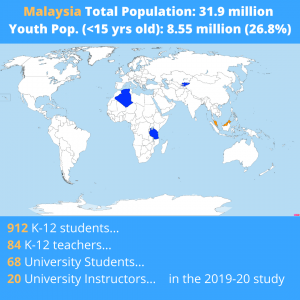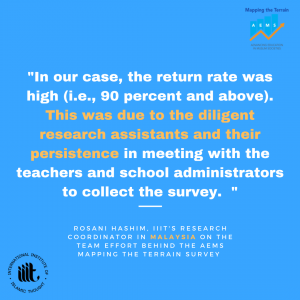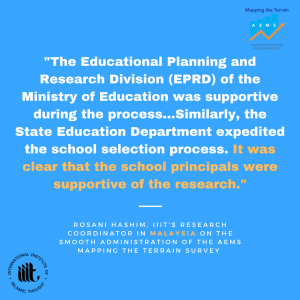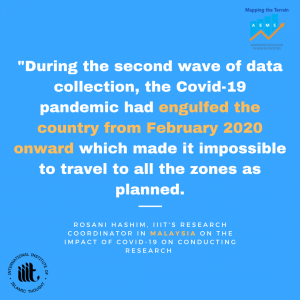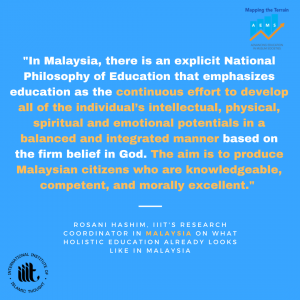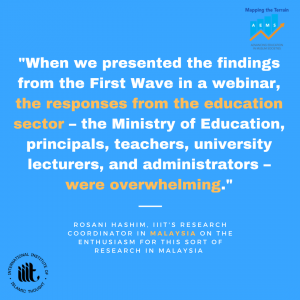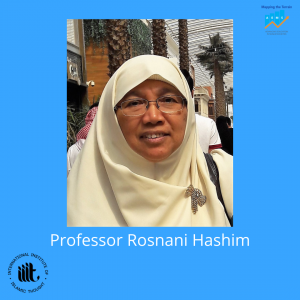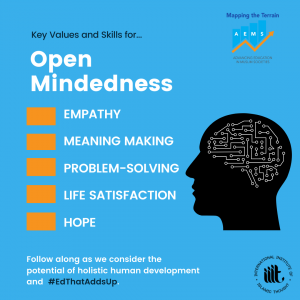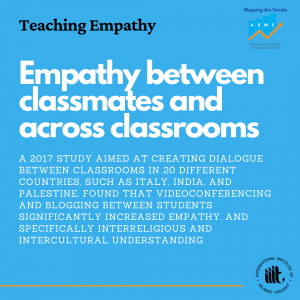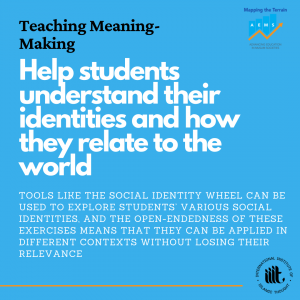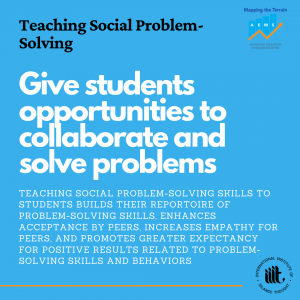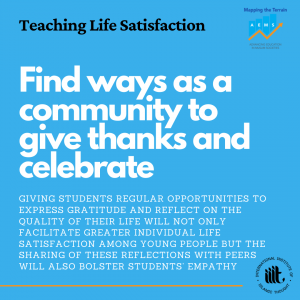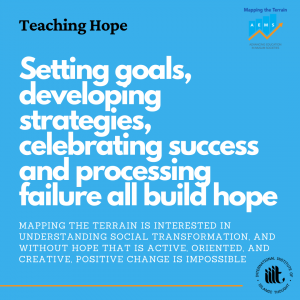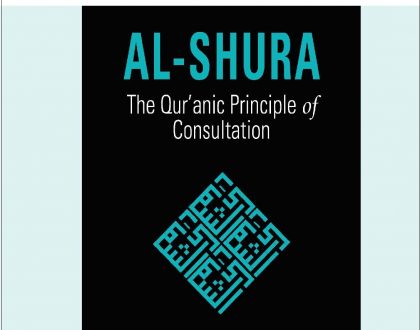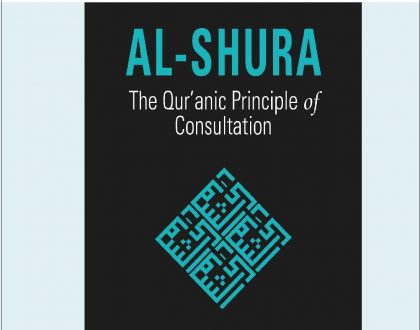AEMS BRIEF #4: CULTIVATING OPEN-MINDEDNESS IN EDUCATION
Open-Mindedness is one of the three areas we identified as necessary for social transformation and that we utilized in the Mapping the Terrain study of Muslim societies. The rationale for focusing on Open-Mindedness, alongside Responsibility and Collaborative Collective, is because they were identified in previous literature as catalysts for change (for more on this, see our third brief). This week, we are exploring the ways in which educators can cultivate open-mindedness in their students as well as some of the expected benefits to society that will come from a a more open-minded generation of young people developing through adolescence and into adulthood. We see open mindedness to be a critical skill and mindset for all groups, communities, and walks of life.
Our construct of Open-Mindedness includes values and skills intentionally selected but not limited to empathy, meaning making, problem-solving, life satisfaction, and hope. This brief will go into greater detail on each of the skills that we have organized under the umbrella category of Open-Mindedness, providing resources for educators who want to integrate these skills into their curriculum and making the case for their significance in human development. The Mapping the Terrain research aims to provide baseline measures of these critical social emotional skills and values in 16 Muslim-societies, and over the long-term we hope to be part of a movement that elevates these skills and values across educational systems to be of comparable significance to educators as more traditionally academic skills like grammar and arithmetic.
Teaching Empathy
In this study empathy is defined as the ability to understand others’ emotion, the willingness to care, feel, and take the perspective of others and to be responsive to their needs. Empathy can be developed internally within the four-walls of a classroom by encouraging sharing across lines of difference. Sometimes all it takes is to teach students to communicate—to listen, express emotions, and put themselves in other people’s shoes. Consider an exercise where students are placed across from an empty chair and are asked to talk to an imaginary person who they had a conflict with.
Activities like these are possible across space and time, but technological developments in video conferencing and long-distance communication have created new opportunities for empathy to be advanced. A 2017 study by Doney and Wegerif evaluated a program aimed at creating dialogue between classrooms in 20 different countries, such as Italy, India, and Palestine, distributed around the world. They found that videoconferencing and blogging between students significantly increased empathy, and specifically interreligious and intercultural understanding. This increased empathy also bolstered students’ resilience against extremist narratives, radicalization, and recruitment into violent extremism. There are certainly technological constraints that need to be considered, but educators across the globe that are interested in developing their students’ empathy should explore opportunities for the spontaneous sharing of personal lifestyle details with students from different countries through blogging and videoconferencing. Many young people are already developing these skills independently with their online activity, but there should be more opportunities to promote deeper relationships across lines of difference in a structured and deliberate way.
Teaching Meaning-Making
Meaning making has been defined as a “sense of coherence or understanding of existence, a sense of purpose in one’s life, the pursuit and attainment of worthwhile goals, and an accompanying sense of fulfillment” (Ho et al., 2010, p. 2). Purpose and meaning are important developmental resources for adolescents, helping youth and their healthy transition to adulthood (Burrow et al., 2010). Lack of meaning and purpose results in negative consequences, such as identity crisis (Erikson, 1968). Helping students make sense of their lives can be part of a larger project of engaging young people in their own identity development. Tools like the Social Identity Wheel can be used to explore students’ various social identities, and the open-endedness of these exercises means that they can be applied in different contexts without losing their relevance. The Social Identity Wheel worksheet is an activity that encourages students to identify social identities and reflect on the various ways those identities become visible or more keenly felt at different times, and how those identities impact the ways others perceive or treat them. The worksheet prompts students to fill in various social identities (such as race, gender, sex, ability/disability, sexual orientation, etc.) and further categorize those identities based on which matter most in their self-perception and which matter most in others’ perception of them. The meaning one makes of their identity is highly dependent on context, and the exercise asks students to reflect on how these meanings are socially constructed and how their own identities relate to those of their peers. Once students have assessed their intersecting identitites, they can return to them in making meaning across the rest of the school year and throughout their lives.
Teaching Social Problem-Solving
Social problem-solving helps individuals manage their emotions through successful adaptation of coping strategies. It also helps with maintaining positive interpersonal relationships through conflict management and resolution. Teaching social problem-solving skills to students builds their reportoire of problem-solving skills, enhances acceptance by peers, increases empathy for peers, and promotes greater expectancy for positive results related to problem-solving skills and behaviors (Shure, 2001). Survey respondents on the Mapping the Terrain research study consistently reported that many of the scenarios they were presented with in the survey were the first time they had considered these social problems in a formal context. Modeling problem solving and providing students with opportunities to consider challenging social problems in a safe classroom environment can help develop better problem-solvers, better learners, and ultimately better thinkers. One way to develop students’ problem-solving is changing the types of questions you are asking them in order to increase rigor. Webb’s Depth of Knowledge (DoK) levels can be applied at all developmental stages from pre-kindergarten through post-secondary and prompting students to think in this way from an early age will pay dividends in the complexity of their thinking as adults.
Teaching Life Satisfaction
Life satisfaction is defined as the cognitive and global self-evaluation of one’s own quality of life that has been studied across cultures and found to be similar and consistent across contexts (Diener et al., 1985). Giving students regular opportunities to express gratitude and reflect on the quality of their life will not only facilitate greater individual life satisfaction among young people but the sharing of these reflections with peers will also bolster students’ empathy. In many cases, people’s sense of their own faith and spiritual being can support their view of life in a hopeful manner. Utlizing faith to teach universal values such as gratitude, empathy, hope, and humility can contribute to life satisfaction and increase physical and mental health (H.G. Koenig , 2012). These existential conversations should be part of the classroom experiences of children of all ages, and holistic education, focusing on the individual as a multidiementional and a connected being, must make room for engaging with what it means to live a satisfied life.
Teaching Hope
Hope is a multifaceted concept defined in diverse and complex ways. For example, Feldman and Snyder (2005) describe hope as an expectation for things to change for the better. Hope is also referred to as the mental willpower for being persistent and progressing toward achieving goals. It is the duty of educators to nurture hope in their students. Mapping the Terrain is interested in understanding social transformation, and without hope that is active, oriented, and creative, positive change is impossible. Teaching students how to set goals, how to develop strategies to reach those goals, how to celebrate goal attainment, and how to bounce back from disappointment can cultivate hope. Building students’ empathy, helping them make meaning in their lives, giving them opportunities to problem solve, and guiding them as they find satisfaction in their lives will all contribute to a more hopeful outlook. When students can feel hope for a better future and adopt a growth mindset they can unlock the full potential that exists in every child.
***
High levels of adolescent open-mindedness can predict long-term adaptability throughout the life course. In addition to the skills and traits highlighted above, we believe that many other things can contribute to open-mindedness, and our goal is engaging the scholarly community in investigating these approaches and examining their applicability in different contexts. Given the rapidly changing geopolitical, environmental, and technological realities of modern life, cultivating open-mindedness in young people is a key developmental task for educators but the question remains on how exactly to do this. The practical ideas provided above could be adapted to your specific community and context.
As this work continues, we hope that you will engage with us in thinking through the implications of this research. You can do that by responding to this email with any thoughts, by following us on Instagram (@iiit_insta) and Twitter (@iiitfriends), and by forwarding this message to anyone in your life who might find it interesting.
Thank you and all the best,
Alex Koenig,
Non-Resident Fellow in Human Development and Education Policy
The Advancing Education in Muslim Societies (AEMS) Team
The International Institute of Islamic Thought.
Recent Posts
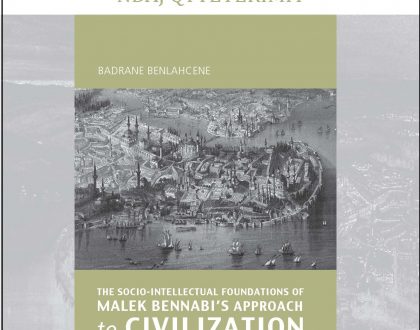
Albanian: Themelet Socio-Intelektuale të Përqasjes së Malek Bennabiut ndaj Qytetërimit (Books-in-Brief: The Socio-Intellectual Foundations of Malek Bennabi’s Approach to Civilization)
July 16, 2025

